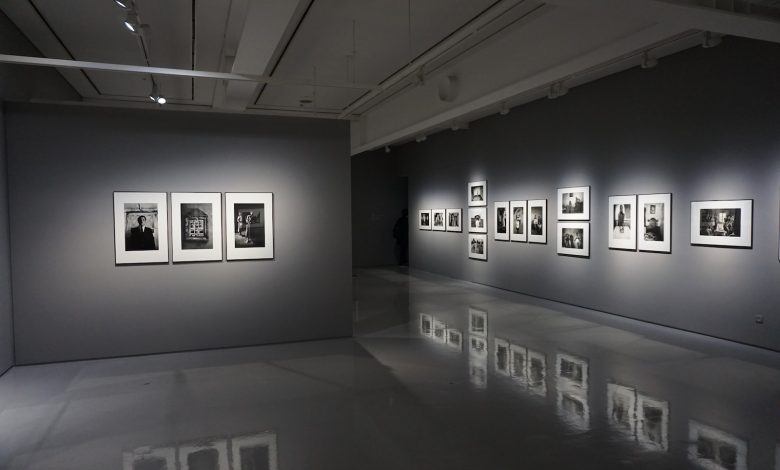
Table of Contents
Getty Images’ Introduction of AI Image Generation
Getty Images, a leading global supplier of stock photos, is harnessing the power of artificial intelligence to branch out into a new line of business. Facing both the threats and opportunities presented by advances in AI, the company has elected to stay ahead of the curve by introducing an innovative AI image generation service. This move allows Getty to remain competitive in the evolving market while addressing the increasing demand for customized, one-of-a-kind images.
Use of AI to Create Images on Demand
Getty's new service leverages AI technology to create unique images based on the inputs provided by customers. The AI is trained on Getty's extensive collection of human-designed images. This results in an image generation service that can produce content tailored to the intricate requirements of the customer, at any given time. The prospect of instant, personalized image creation could present a compelling value proposition for a variety of industries.
Aim to Cater to Business Clients for Commercial Use
The company's introduction of an AI image creation service aims to bring additional value for its business clientele. With the new service, businesses can request AI-generated images for commercial use, giving them access to a massive array of unique, novel images for marketing, branding, and online communication purposes. This not only diversifies Getty's portfolio but also expands its client base, leading to potential revenue growth.
Plan to Share Generated Revenue with Getty Contributors
Looking towards sustainability and maintaining strong relations with contributors, Getty plans on sharing the revenue generated from the AI-created images. This initiative ensures that the creators and artists, whose original images were used to train the AI, are not left out despite the technological advancement.
Prevention of Generating Harmful “Deepfake” Images
While the company embraces AI technology, it is also cognizant of the potential misuse of such technology. Getty has made it clear that the technology will be strictly monitored to prevent the generation of harmful "deepfake" images which could mislead or cause harm. Strict guidelines and policies have been put in place to ensure the responsible use of the AI image generator.
Restriction on AI-Generated Content in Getty’s Libraries
Despite the introduction of AI image generation, Getty has maintained restrictions on the inclusion of AI-created imagery in their vast libraries. The company believes in maintaining the integrity of its collection, which consists predominantly of human-created images, placing a significant value on the artistry and creative process involved in traditional photography.
Getty’s Legal Actions Against AI Image Makers
In taking the necessary initiatives to safeguard its intellectual property rights, Getty Images has not hesitated in taking firm actions against contenders in the AI image creation space. In what signifies a significant legal wrangling in the world of AI-generated imagery, Getty sued a noted provider of AI-generated images, alleging large-scale, unauthorized use of its image collection.
Lawsuit Against Stability AI for Alleged Infringement of Getty’s Image Collection
Earlier in the year, Getty Images filed a lawsuit against Stability AI, an emerging leader in the AI image generation market. The suit claimed that Stability AI engaged in "brazen infringement" of Getty's copyrighted work. The alleged infringement seemed to be centered on the unauthorized use of Getty's comprehensive image collection, thereby causing significant harm to the company's business and reputation.
Claim of Unpermitted Copying of Over 12 Million Photographs
The case builds upon the allegation that Stability AI unlawfully copied and used a staggering 12 million photographs from the Getty Image's collection. This not only portrays a blatant disregard for intellectual property rights but also points out inherent challenges related to the use of AI in the image-making sector. The argument persist that AI should be used responsibly within legal and ethical frameworks to ensure creativity and originality are not compromised.
Potential Damages Amounting to Theoretically $1.8 Trillion
Getty Images' claim puts the theoretical damages from the lawsuit at a mind-boggling $1.8 trillion. While this figure is unlikely to be awarded, it serves as a marker for the potentially large-scale impact of this lawsuit, setting a precedent for future conflicts in the burgeoning field of AI based image creation. As Getty navigates this complex situation, it further illustrates the intricate intersection of innovation, copyright law, and the ethics of AI.
Collaborations and Competitions
As Getty forecasts the AI-driven future of the image generation industry, it has strategically chosen collaboration and competition avenues to thrive in this landscape. Besides competing with other notable names in the industry, it has also aligned with tech giant Nvidia to leverage the power of AI.
Longstanding Collaboration with Nvidia
For Getty, innovation is not only about competition but also about strategic partnerships. This is evident from its longstanding collaboration with Nvidia, a market leader in AI technology. The collaboration enables Getty to develop its AI image-generating technology with robustness and efficiency. Nvidia’s expertise provides Getty the cutting-edge advantage in the realm of AI image creation, optimizing the use of Getty’s existing vast image library.
Competition with Shutterstock and Adobe in the Field of AI Image Generation
In a market with a finite number of large players, Getty Images pits itself against key competitors such as Shutterstock and Adobe, who are also exploring the opportunities of AI image generation. Each entity brings a unique offering to the table, contributing to the competitiveness of this field. Getty’s move into AI image generation demonstrates its determination to stay at the forefront of industry innovation, even while engaging in fierce competition.
Differentiation from Photojournalism or Editorial Content Providers like The Associated Press
The transition into AI image generation is also a strategic move by Getty to differentiate itself from other content providers, especially those in photojournalism or editorial sectors, like The Associated Press. Getty’s focus on the creation of new images on demand using AI sets it apart and enhances its unique value proposition. It essentially redefines the boundaries of image creation while maintaining its position as a leader in the stock photography market.
Concerns and Criticisms
As Getty Images embraces the technology of AI-generated imagery, it also confronts criticism and concerns associated with this emerging technology. Questions regarding respect for creator rights, potential contribution to abusive use of deepfakes, and general disapproval against pioneers in AI imagery have surfaced within this nuanced dialogue.
Disapproval Against First Movers in AI-Generated Imagery
As one of the first entrants into the AI-generated imagery industry, Getty Images faces considerable scrutiny and criticism. This often comes from traditionalists who view AI as a threat to creativity and artistic integrity. They argue that such technology undermines the hard work and talent of artists and photographers by allowing machines to replicate their work. This criticism, while posing challenges, also highlights the importance of careful, transparent, and ethical implementation of AI technology in the field of image generation.
Concerns Regarding Respect for Creator Rights
AI-generated imagery stirs concerns over creator rights and copyright infringement. Getty has been particular about respecting creator rights, as shown in its lawsuit against Stability AI. However, critics argue that AI could obscure the lines of ownership and authority over imagery. The industry and Getty will need to navigate these complexities and ensure that AI is used conscionably, with adequate credit and remuneration extended to the original creators of images used to train the AI.
The Issue of Contributing to Deepfakes and Associated Risks
Deepfakes or AI-altered videos are a major concern in today's digital age given their potential misuse for propagating false information or causing harm. Concerns have been raised that AI-generated imagery could contribute to the creation of realistic but synthetic media, inadvertently contributing to the deepfake problem. As Getty moves forward with its use of AI, it must ensure strict monitoring and ethical practices to prevent its technology from contributing to potential misuse or harm.




